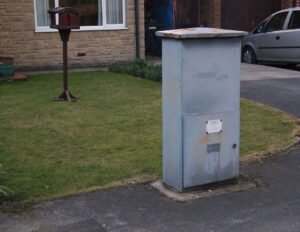Wellington, New Zealand – An electric utility worker in New Zealand has been awarded more than $85,000 in compensation after suffering serious burns in an electrical arc flash while working at a Wellington substation in 2014. The heat of the arc flash was so severe that the man’s pants melted on his legs.
The electrical accident occurred when two Northpower employees were performing maintenance work on roadside transformers. A bracket fell onto live contacts, causing an electrical short and arc flash. In court, the injured man testified that he had pulled a transformer off a panel, and was then hit by the arc flash and flames.
The electrician, who was 20 when the accident occurred, described the pain, trauma and ongoing effects of the incident in court last week. “I pulled the transformer off the panel and all I could hear was myself  screaming and the flames and the arc flash,” he told Wellington District Court on Thursday. “All I could feel was intense heat and there was me, running for my life.”
screaming and the flames and the arc flash,” he told Wellington District Court on Thursday. “All I could feel was intense heat and there was me, running for my life.”
An Arc Flash is an electrical explosion due to a fault condition or short circuit when either a phase to ground or phase to phase conductor is connected and current flows through the air. Temperatures may exceed 35,000° F. For reference, the surface of the sun is 9000° F.
These high temperatures cause rapid heating of surrounding air and extreme pressures, resulting in an arc blast. The arc flash will likely vaporize all solid copper conductors which will expand up to 67,000 times their original volume when vaporized. An arc flash produces fire, intense light, pressure waves, and flying shrapnel any of which can cause electrical equipment to explode, resulting in injury or death to workers and destruction of electrical equipment.
When an arc flash happens, it does so without warning and is lightning quick. The result of this violent event is usually destruction of the equipment involved, fire, and severe injury or death to any nearby people. Proper safety and protection measures must be taken to limit the damage from an arc flash which include conducting an arc flash study, short circuit study, and NFPA 70E electrical safety training.
The court ruled that Wellington Electricity and Northpower failed to provide clear instructions to prompt workers to stop if they encountered increased risks or conditions; was responsible for not shutting off the power before work was undertaken; and for not documenting hazard assessments. The 2014 incident led to immediate changes in Northpower’s work practices, including a new approach to planning and risk assessment.
Read more from original source.
We are here to help you.